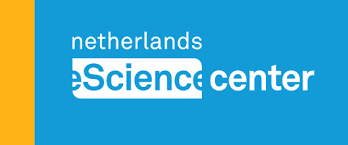 The use of simple research software, like R scripts and Python code, is becoming increasingly common in social science due to increasing data-driven research. However, it's not typical for these researchers to have formal training in developing and maintaining research software. Fortunately, there is growing awareness of the importance of sustainable research software owing to Open Science practices and research integrity. Thus, I am motivated to take on the role of liaison who translates the knowledge of developing sustainable research software from the computer science field into clear and accessible guidance for social science scholars. Being granted the fellowship by eScience center, I obtained an opportunity to conduct this project.
The use of simple research software, like R scripts and Python code, is becoming increasingly common in social science due to increasing data-driven research. However, it's not typical for these researchers to have formal training in developing and maintaining research software. Fortunately, there is growing awareness of the importance of sustainable research software owing to Open Science practices and research integrity. Thus, I am motivated to take on the role of liaison who translates the knowledge of developing sustainable research software from the computer science field into clear and accessible guidance for social science scholars. Being granted the fellowship by eScience center, I obtained an opportunity to conduct this project.
 Being granted a fellowship by the eScience Center has provided me with the opportunity to implement this project. It aims to empower researchers to reuse their software over time and share it within the academic community, accumulating knowledge. To achieve this, I will develop a practical guide that assists social science researchers in creating sustainable software. This guide will cover sustainable software practices comprehensively, without overwhelming researchers with excessive technical complexity. I will reach out to various communities and diverse researchers to obtain input and feedback.
Being granted a fellowship by the eScience Center has provided me with the opportunity to implement this project. It aims to empower researchers to reuse their software over time and share it within the academic community, accumulating knowledge. To achieve this, I will develop a practical guide that assists social science researchers in creating sustainable software. This guide will cover sustainable software practices comprehensively, without overwhelming researchers with excessive technical complexity. I will reach out to various communities and diverse researchers to obtain input and feedback.
A hands-on workshop will be organised to demonstrate this guide. This workshop will also provide researchers with the opportunity to have their code peer-reviewed by other participants. Furthermore, the guide will also be disseminated through Zenodo to reach researchers outside of UT, thereby enhancing its impact. Opportunities to amplify its impact through dissemination, such as presenting at conferences like the ODISSEI Conference for Social Science in the Netherlands, will also be explored.





